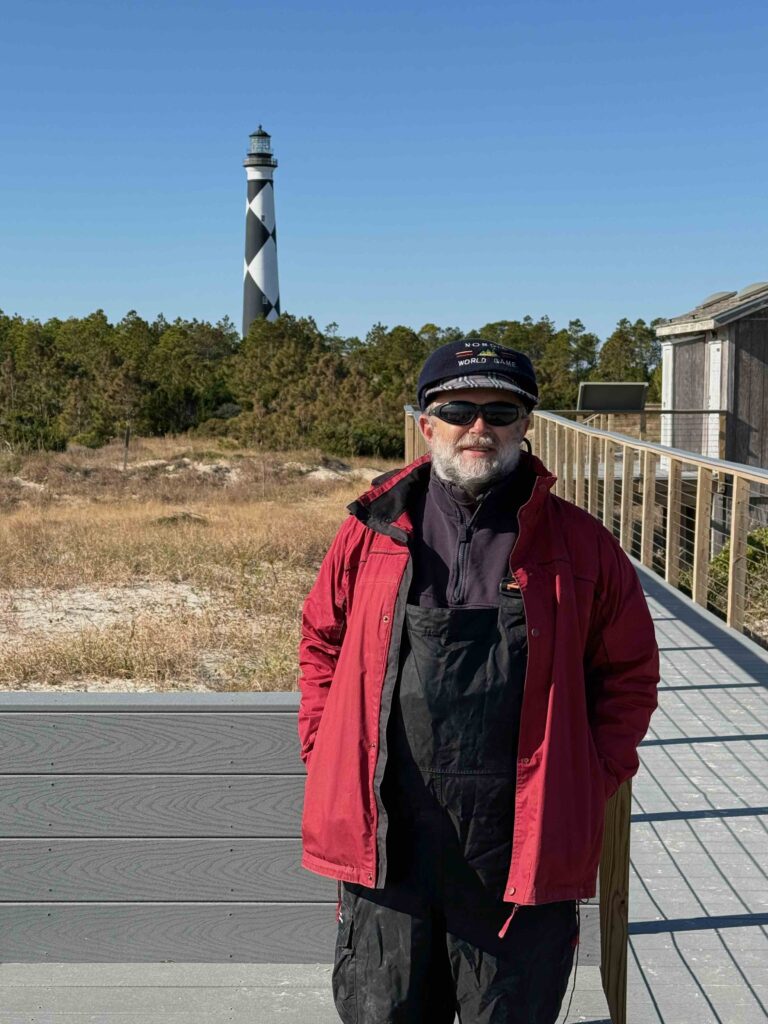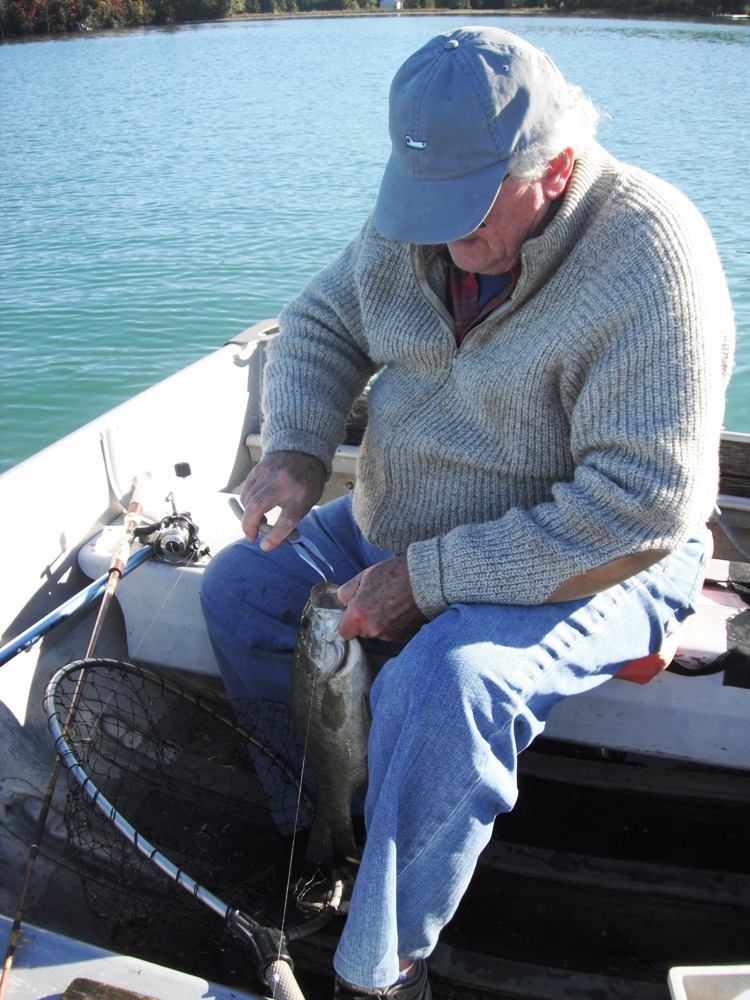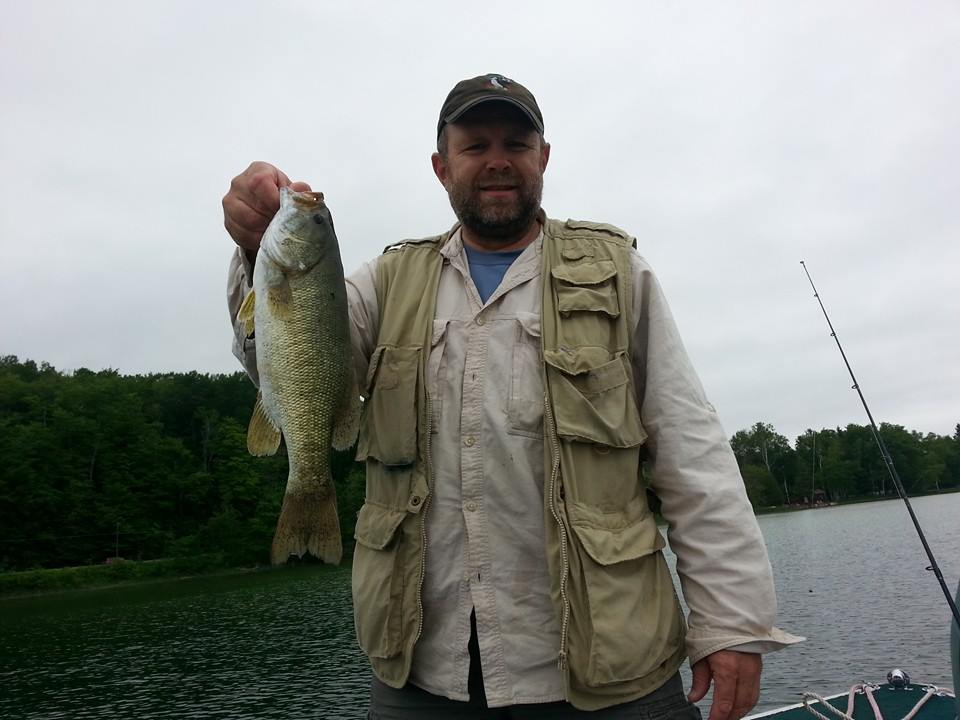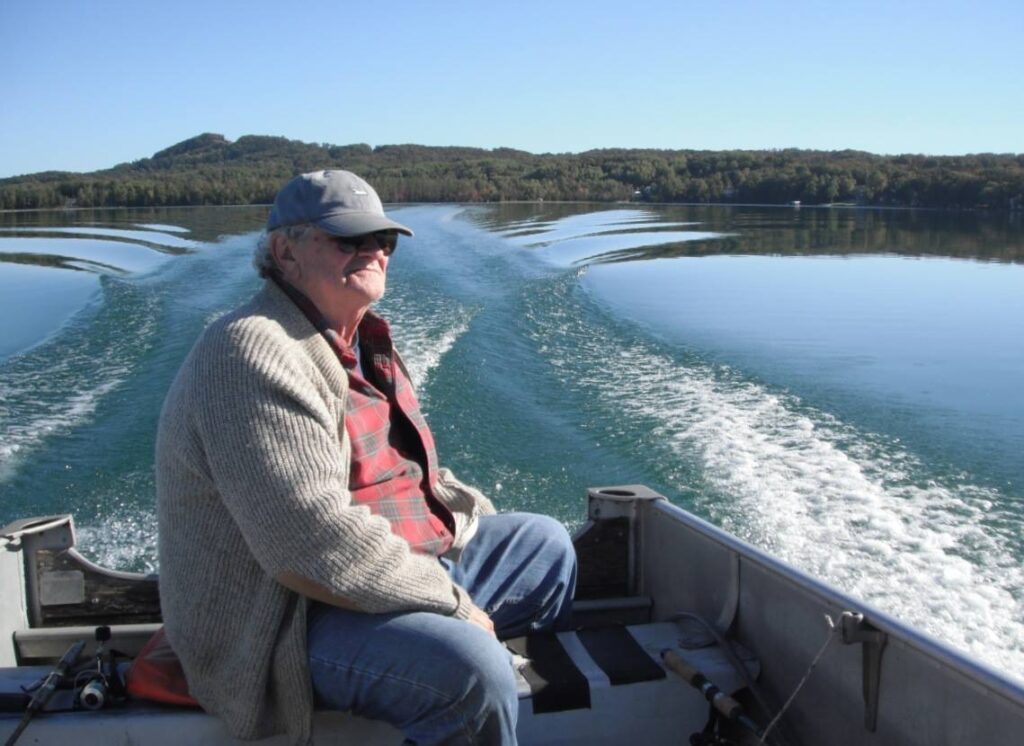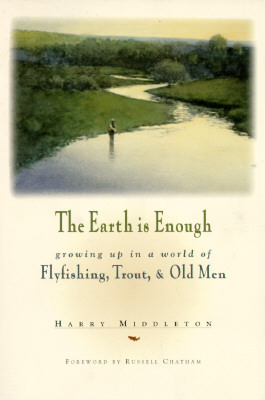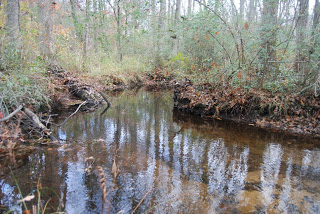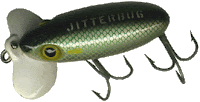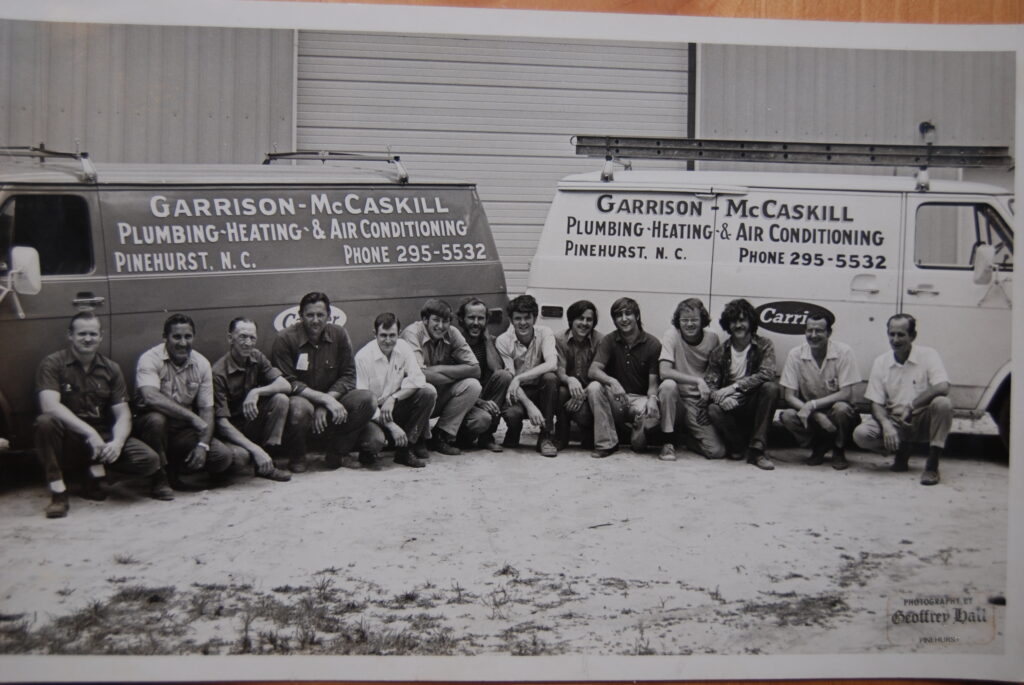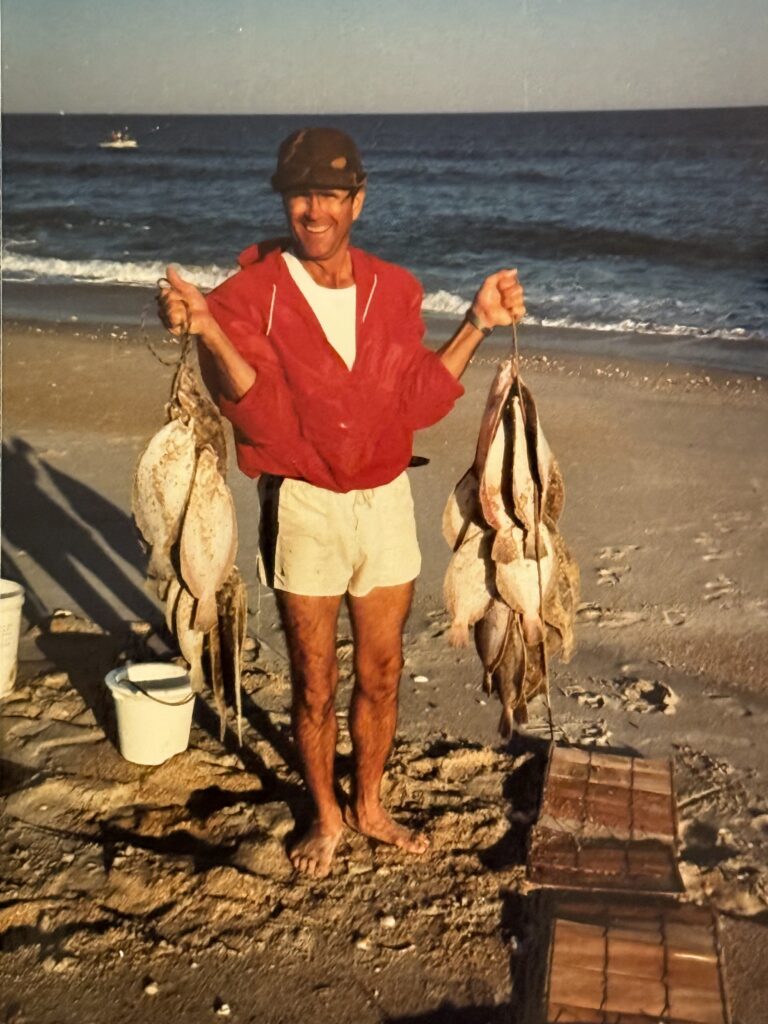
My dad, who died this past May, loved fishing. I have fond memories from shortly after the time we moved to the Wilmington area in 1966, of riding with him in a jon boat over to Masonboro Island. We’d camp and fish. It was an annual fall ritual, generally done in October, once the weather cooled.
During the daylight, we’d roam the surf with light tackle, looking for holes. Finding one, we’d cast a minnow, hoping to feel the bump of a flounder biting. We’d let the fish take it for a minute before setting the hook and reeling it in.
After dark, we’d sit in lawn chairs on the beach, with a lantern for light, and fish using cut bait. We’d stay on the beach late into the evening. With the sound of the surf filling the air, I’d watch the winter constellations or the moon rise. The moon always sent its rays glistening across the water straight at me. We’d catch a short night of sleep and be back on the beach before sunrise, fishing again as the birds took to flight as the sun peaked over the horizon. Breakfast might be a bluefish grilled on coals. In time, Dad started to spend more time on the deserted island fishing so that by the time I was in high school, he’d spend a whole week there, coming back every day or so to clean and freeze fish and take a shower.
Sadly, by the time I was in high school and working, it was hard for me to spend much time on the island fishing. But I still made it over occasionally, sometimes paddling a canoe or kayak over. Then I moved away and started my ramble around the country.
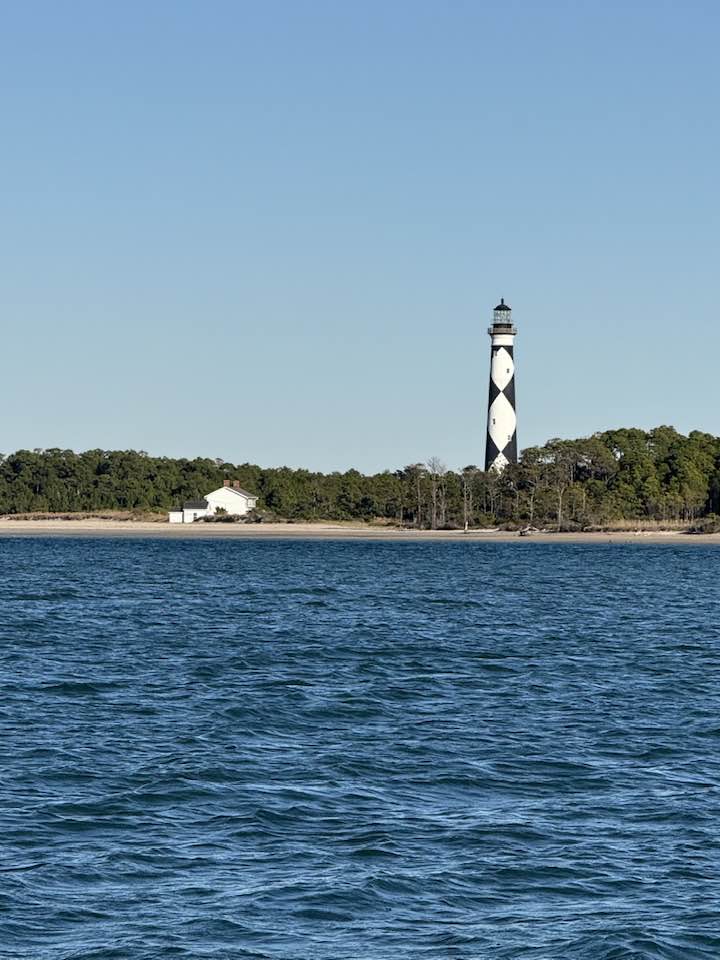
Back in the 1980s, when I living in Nevada, my father started taking a weekly trip every year, right after Thanksgiving, to Cape Lookout. While he would have never called it “global warming,” the weather had changed enough so that the blues and trout wouldn’t be running in October. For the next twenty-five or so years, he made the trip to Cape Lookout. His brother, my uncle, along with my brothers and their kids and a few friends, would make the trip. Occasionally, my sister and I were able to join him for a few days, as we were both living in other parts of the country. After my mother became ill, a couple of times we took off a week and split out time between staying on the island and staying with our mom.
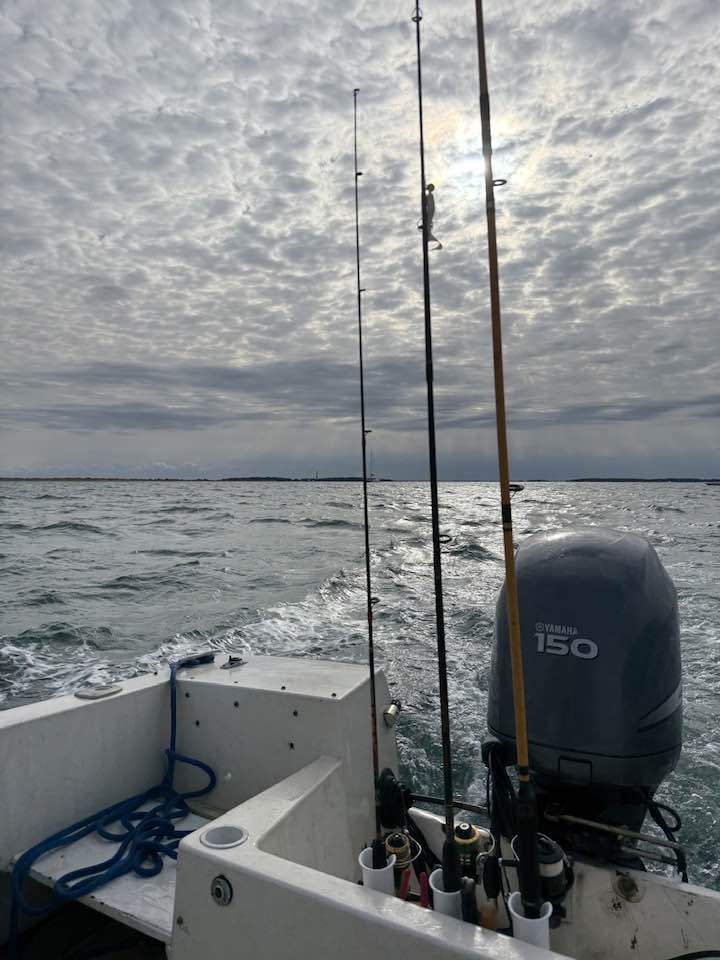
I’m not sure how many times I’ve been to Lookout, but probably a dozen or so. Sometimes it was for a night, other times for several nights. I’ve been over on the island when it was warm and the mosquitoes were horrible. And I’ve been when it was frigid, and the wind chill made it bone cold. But I loved those nights camping on Lookout. Sometimes we’d fish in the surf like we did on Masonboro Island, other times we’d fish from the boat in the marsh or out on the jetty south of the Cape.
Six or seven years ago, they stopped camping on Lookout. It just became too big of a problem to haul everything over on the island. Instead, they rented a house on Harker’s Island and would ride over in a boat each day to fish. My dad’s last time on the island was in 2020, shortly after my mother’s death. That year, my sister and I split the week so that my dad would have someone in his boat. After 2020, my uncle kept up the tradition.

Now that my father’s no longer with us, one of my brothers and my sister joined my uncle and his brother-in-law for a week on the island. My youngest brother couldn’t make it as he’s currently living overseas. It was good to be together, but cold. I’ve even been over on a solo kayaking trip.
This year, we only had one decent day of fishing at the jetty. We all caught our limit on gray trout, but that’s nothing to write home about because the limit is one per person. But it was enough for a good fish fry on Wednesday night.

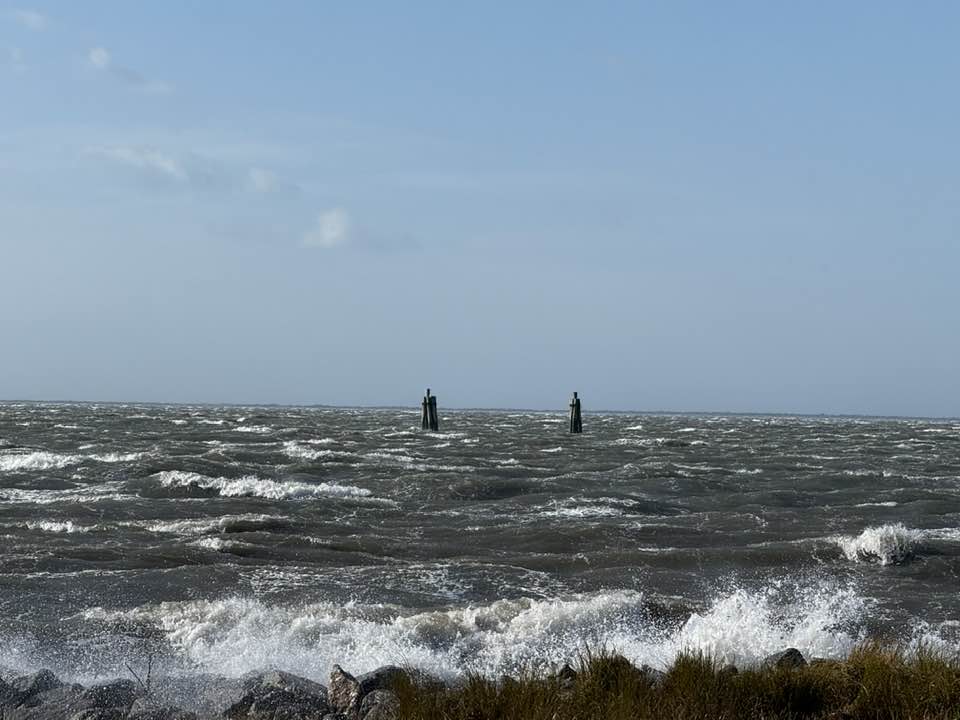
The wind blew like crazy on Thursday, with gust over 50 mph. No one had a large enough boat to go out that day as there were large waves in the sound. Instead, I spent time in the Core Sound Museum. I’d been there before, but it was rebuilt after it lost its rough to a hurricane a few years ago. They were getting ready for their duck decoy festival and Christmas. While I never duck hunted in these waters, duck hunting is just about as big as fishing in the Core Sound area. Our last day on the island it was bitterly cold. We stayed inland and fished for nearly five hours. I only had two bites, but no fish were caught.
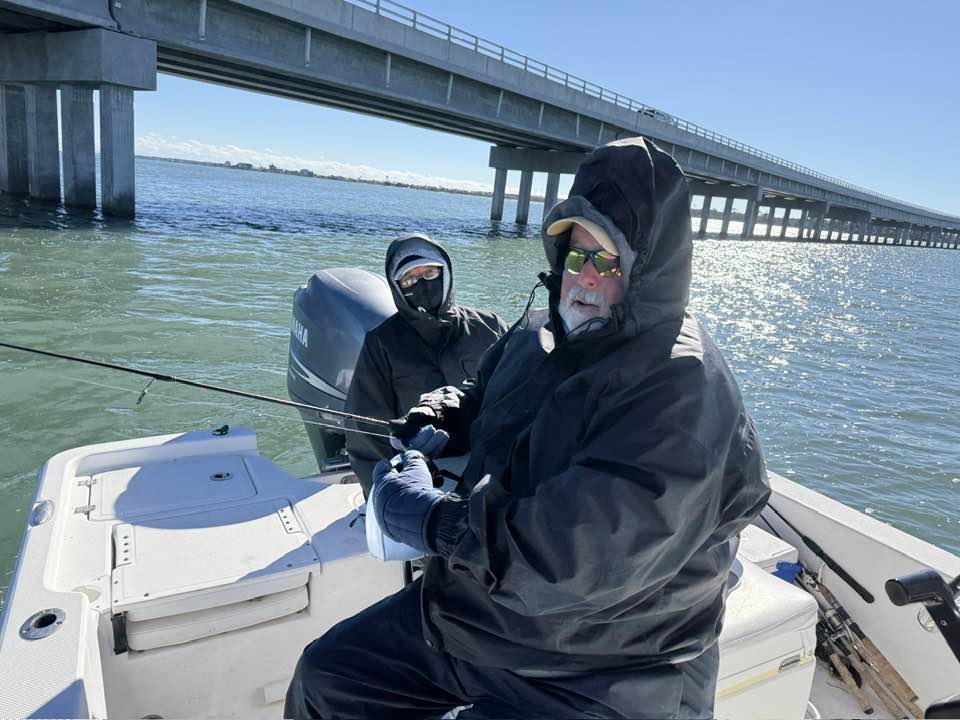
Despite the weather, it was good to be on the water and to spent time with my siblings and uncle as we fished and prepared banquets at night while watching college football.
